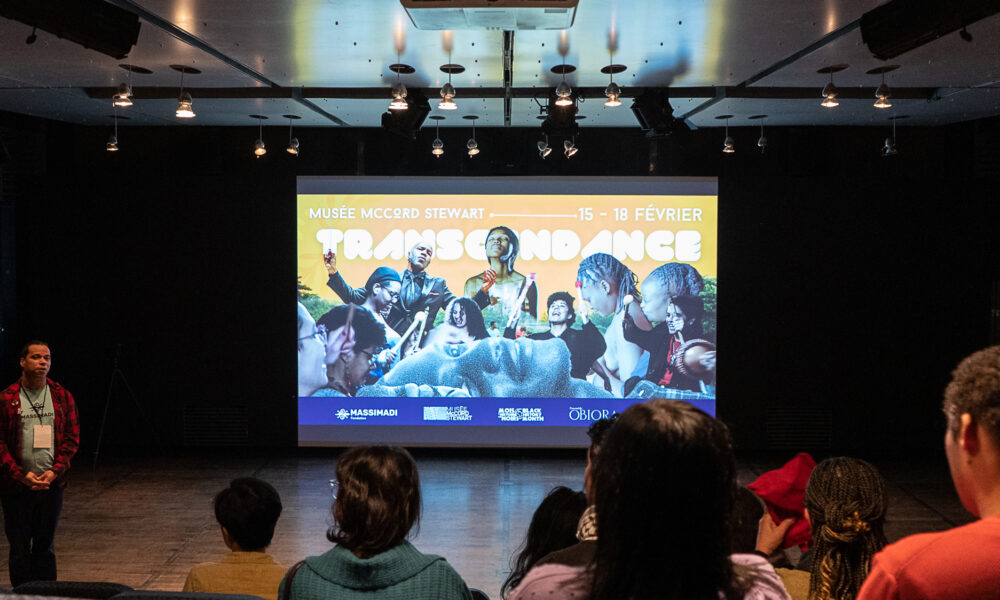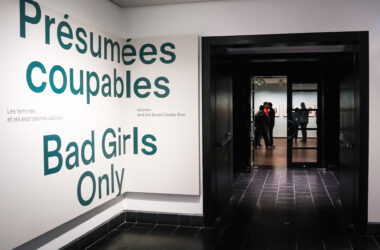From Feb. 15 to 18, the Massimadi Foundation held its annual Afro LGBTQ+ Arts and Film Festival at the McCord Stewart Museum in Montreal. In honour of Black History Month, this special edition of the festival, themed “Transcendence,” highlighted Black queer stories that are not often seen or heard by the mainstream public. The Foundation’s president, Laurent Lafontant, decided that Black History Month was the ideal time to call attention to these stories.
“We want to put forward the achievements of Black, queer people […] to promote Afroqueer culture and give them visibility,” Lafontant said in an interview with The Tribune.
The festival included a number of films, including All the Colours of the World are Between Black and White, the directorial debut of Nigerian filmmaker Babatunde Apolawo. The movie tells the story of two men, Bambino and Bawa, who cross paths at Bawa’s betting shop and grow closer to each other while developing Bawa’s ambitions to become a photographer. Bambino and Bawa are each painfully aware of the barriers facing gay men in Nigeria, but they find ways to grapple with their queerness and deal with their budding relationship in very different ways. Bawa has accepted his sexuality and wants to explore their connection further, whereas Bambino struggles with accepting Bawa’s advances. This highlights the struggle that gay men face both through persecution from governments but also in one’s own clear discomfort with the subject of queerness. They both make mistakes in the film, failing to communicate with each other and hurting each other, with Bawa even outing Bambino to a group of thugs on the street. It is difficult to see these moments, but it is still incredibly emotional to see them find a connection that they may never fully be able to commit to.
While this incredibly tender story is playing out, the fact that members of the LGBTQIA+ community face enormous amounts of discrimination in Nigeria is always present in the character’s minds. The two men rarely touch, yet their connection is palpable. This film allows us to see that, even in the darkest of circumstances, people find love. They may not be able to openly be together in Nigeria, but they show us that anything is possible.
Lafontant said that his favourite part of organizing this festival was the process of watching and selecting the movies because it allowed him to bring queer stories to a new audience. It is evident why when watching this film. Living in a metropolitan city like Montreal, often interacting with a diversity of individuals, can make us feel like we know more about the world than many others do. However, the stories that the Massimadi Festival highlights make us realize that the world is much bigger than it seems. Through films such as All the Colours of the World Are Between Black and White, viewers learn about stories that otherwise would not be seen or circulated. Queerness has a long history in Nigeria, predating colonialism, making this film an important cultural statement. In a time where it seems to many that we are moving backward with our treatment of the 2SLGBTQIA+ community, queer stories in films from around the world are more important than ever. While the circumstances that Bambino and Bawa find themselves in may not be immediately relatable to people in Western countries, the emotions—love, loneliness, loss—at the heart of their story are widespread. These films make the world smaller and allow us to connect with people who live oceans away.









